In this article, we’ll discuss common symptoms and causes of dishwasher leaks and some tips on what to do if you find one in your home. Read on to learn more about detecting and preventing leaks in your dishwasher!
A dishwasher is a helpful appliance that makes cleaning dishes a lot easier. However, left unchecked, a watery mess can cause thousands of dollars in damage –- not to mention the headache of dealing with your insurance company. The good news is that there are several tell-tale signs you can look out for so you don’t get caught off guard by an unexpected flood.
What Is a Dishwasher Leak?
A dishwasher leak occurs when water escapes the confines of the appliance. It can be caused by a variety of factors, with one of the most common being damaged or worn-out hoses. If left unchecked, a leak could cause significant damage to your home and belongings.
It’s important to understand what constitutes a leak in order to recognize it when it happens. A typical definition of a leak is any instance where water seeps out from within the appliance, regardless of its source. This includes any kind of water infiltrating through cracks, seals, pipes, or other parts of the unit.
Potential Causes
When it comes to the causes of a dishwasher leak, there are several possibilities. Depending on how old your dishwasher is and what type of maintenance you’ve done over the years, any one or more of these issues could be at fault:
- Faulty door seal: If a seal around the door or tub isn’t seated properly, water can escape from the appliance. This usually happens with older models that have been in use for some time.
- Loose or damaged supply line: The supply line that connects the dishwasher to the water source can also cause leaks. If the supply line is loose or damaged, water can leak out of the line and onto the floor.
- Damaged pump seal: The pump seal is responsible for preventing water from leaking out of the dishwasher’s pump. If the pump seal is damaged, water can escape through the seal and cause a leak.
- Faulty installation: Improperly installed dishwashers can also cause leaks. From loose connections between the hoses and valves to incorrect positioning of parts like filters and pumps, an incorrectly installed dishwasher can lead to significant leakage problems.
- High water pressure: High water pressure in your home’s plumbing system can also contribute to a leaky dishwasher. When too much pressure runs through the hose connecting the appliance to the faucet, it can loosen fittings or even blow out seals altogether.
- Clogged or damaged drain line: The drain line that carries the water out of the dishwasher can also cause leaks. If the drain line is clogged or damaged, water can back up into the dishwasher and cause leaks.
- Broken float switch: The float switch is a safety device that stops the dishwasher from overfilling with water. If it’s malfunctioning, it can cause the dishwasher to overfill and leak.
- Cracked dishwasher tub: If the tub of your dishwasher is cracked or damaged, it can cause leaks. Over time, the tub can develop cracks or holes, causing water to leak out of the dishwasher.
- Damaged spray arms: The spray arms in your dishwasher distribute water to clean your dishes. If the spray arms are clogged or damaged, water can leak out of the dishwasher and cause a mess.
Inspecting all of these potential causes requires knowledge of both plumbing systems and dishwashers alike. It’s important to identify where exactly the leak is coming from before attempting any repairs.
Warning Signs
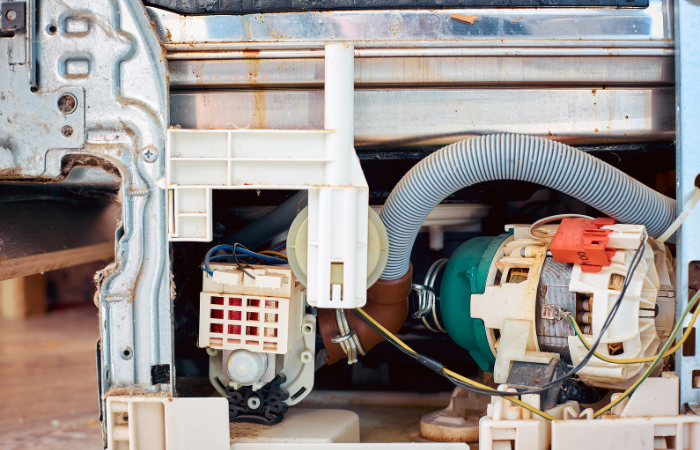
When it comes to detecting a leak, the signs and symptoms are quite clear. There’s no doubt that if you’re experiencing water damage in your home due to a leaking appliance, you must take care of it immediately. Now let’s discuss some common warning signs of a leak.
– Water on the Floor
If you notice water on the floor pooling around your dishwasher, it’s a clear indication of a leak. The water may be pooling around the front or sides of the appliance, indicating a leak in the door seal or the supply line.
– Wet Cabinets or Walls
A leak can also cause the cabinets and walls near the appliance to become damp. If you notice water droplets or dampness on the cabinet or wall adjacent to the dishwasher, you should investigate the source of the leak.
– Mold or Mildew Growth
A leak can lead to mold or mildew growth in your kitchen. If you notice a musty smell or see mold growing near the dishwasher, you should inspect the appliance for leaks.
– Rust or Corrosion
A leak can cause rust or corrosion on the dishwasher’s exterior, particularly around the bottom of the appliance. If you notice any of these two signs, it’s important to inspect the dishwasher for leaks.
– Strange Noises
If you hear unusual noises from your dishwasher, such as a gurgling sound, it could indicate a problem with the drain line. A clogged or damaged drain line can cause water to back up and leak out of the dishwasher.
– Reduced Cleaning Performance
If your dishwasher is not cleaning your dishes as good as it used to, it could indicate a problem with the spray arms. Clogged or damaged spray arms can cause water to leak out of the dishwasher and reduce cleaning performance.
If you’ve noticed any of these indicators in your kitchen, don’t hesitate to get help from a professional who can look into potential causes of a leak and offer solutions. It’s important not to overlook these warning signs so that serious damages don’t occur in other parts of your home down the line.
Leak Repair Options
Once a potential leak has been identified, the next step is to determine repair options. Depending on the severity of the damage and the underlying cause, these may range from simple DIY solutions to more complex repairs that require professional help.
For minor issues such as loose parts or faulty valves, it might be possible to rectify them yourself with basic tools and knowledge. Make sure you understand all safety considerations before attempting any repairs. If in doubt, always contact a qualified appliance technician for assistance.
Common DIY dishwasher repairs include replacing hoses and seals, checking and cleaning filters, lubricating door gaskets, and tightening screws or brackets. But, we don’t recommend DIY methods as they can create more problems if not done correctly and can even pose safety hazards if the repairs involve electrical or plumbing work.
More serious leaks may require replacing parts like pumps or motors which usually require expert knowledge and specialized equipment—in this case, it’s best to call an experienced dishwasher repair specialist who can quickly identify what needs fixing and replace any necessary components without causing further water damage. They should also know how to fix other common problems associated with leakage, such as mold growth in walls or floors due to moisture accumulation.
If your home has suffered extensive water damage through a leaking dishwasher, then getting expert advice is always recommended for assessing the extent of the problem and finding effective remedies as soon as possible. Professional technicians are equipped with high-grade tools specifically designed for repairing leaks in appliances; they will be able to pinpoint exactly where the issue lies and advise on suitable fixes accordingly while minimizing the disruption caused by their work.
Conclusion
It’s essential for all homeowners to know how to check for a leak in their dishwasher so they can be prepared if one occurs. Otherwise, the extent of the damage may worsen, costing you more money in the long run. If you need help with a dishwasher leak, PuroClean Zephyrhills can help. We have a team of experts equipped with the necessary tools and equipment to ensure your home remains safe and free from water damage. Schedule an inspection today!
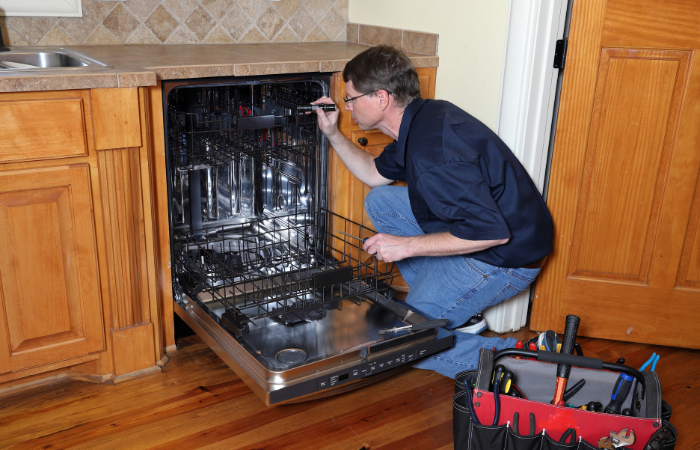
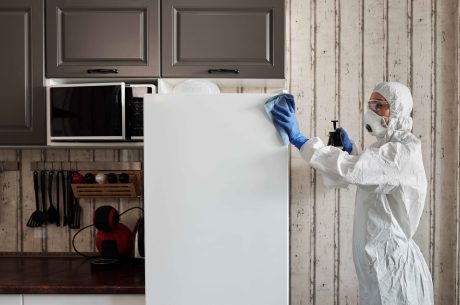
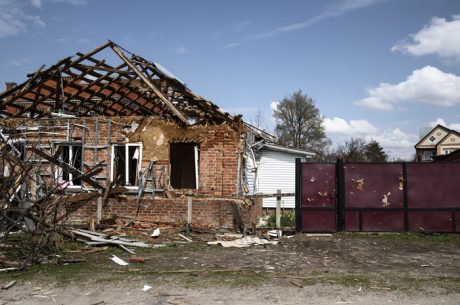
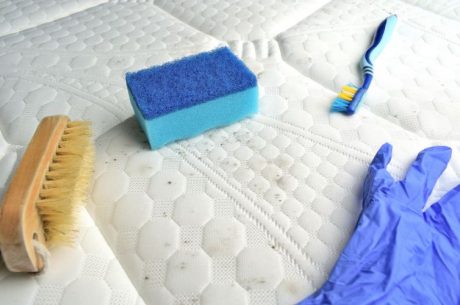
 PuroClean Certified Restoration Specialists
PuroClean Certified Restoration Specialists